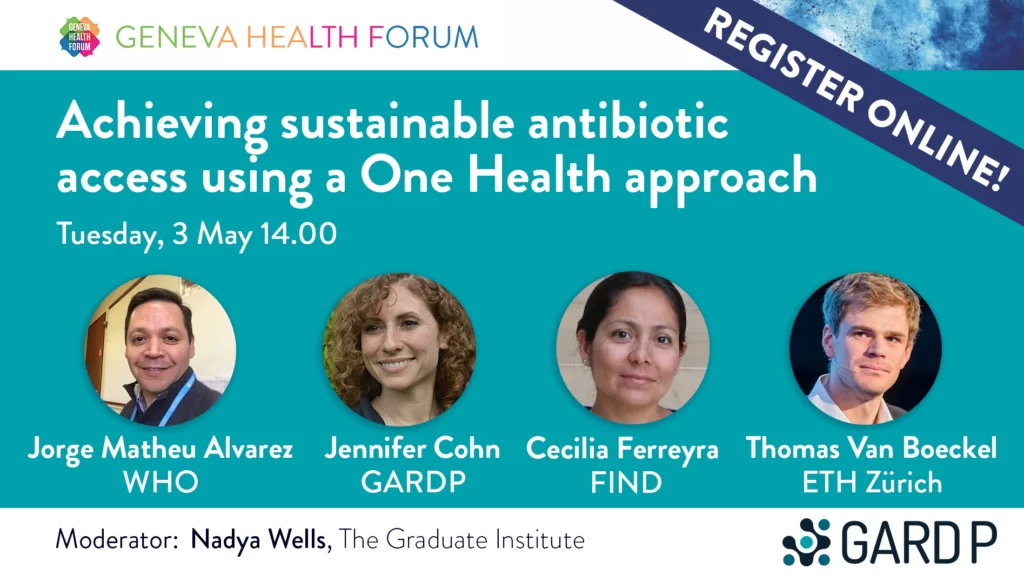Geneva Health Forum – Achieving sustainable antibiotic access using a One Health approach

Time: Tuesday 3 May, 14:00 CET
Every year 1.2 million people die due to drug-resistant infections, more than HIV/AIDS or malaria. The growth of drug-resistant infections is a silent pandemic. If left unchecked, humanity will be unable to treat common illnesses like pneumonia, infections in newborns or secondary bacterial infections caused by viruses. Like COVID-19. Drug-resistant bacteria can infect anyone, of any age, in any country.
Meaningful change can be achieved with sufficient political will, resources and through a holistic One Health approach that embraces efforts to redress the inappropriate use of antimicrobials in humans, animals and environment, all inextricably linked.
Antimicrobial resistance (AMR) is in fact a prime example of the importance of the One Health approach since antibiotic use in any one of these areas can potentially impact the health of the others: AMR fostered by drug use in animals can negatively impact human well-being and vice versa. Additionally, antibiotics administered to both people and animals, and used in agriculture in general, inevitably end up in the environment which can simultaneously impact ecosystem health and potentially become a reservoir for resistant organisms.
Now more than ever, governments have the opportunity to counter the spread of AMR and take action to address the global issue of drug-resistant infections. We know the threat is serious, and we are not preparing well enough.
The objective of this session is to explore how to achieve sustainable antibiotic access using a One Health approach, and leveraging opportunities to support policies, R&D, and implementation to ensure appropriate and equitable access to antibiotics.
Speakers:
- Jorge Matheu Alvarez, World Health Organization
- Jennifer Cohn, Global Antibiotic R&D Partnership GARDP
- Cecilia Ferreyra, FIND
- Thomas Van Boeckel, ETH Zurich
- Moderated by: Nadya Wells The Graduate Institute